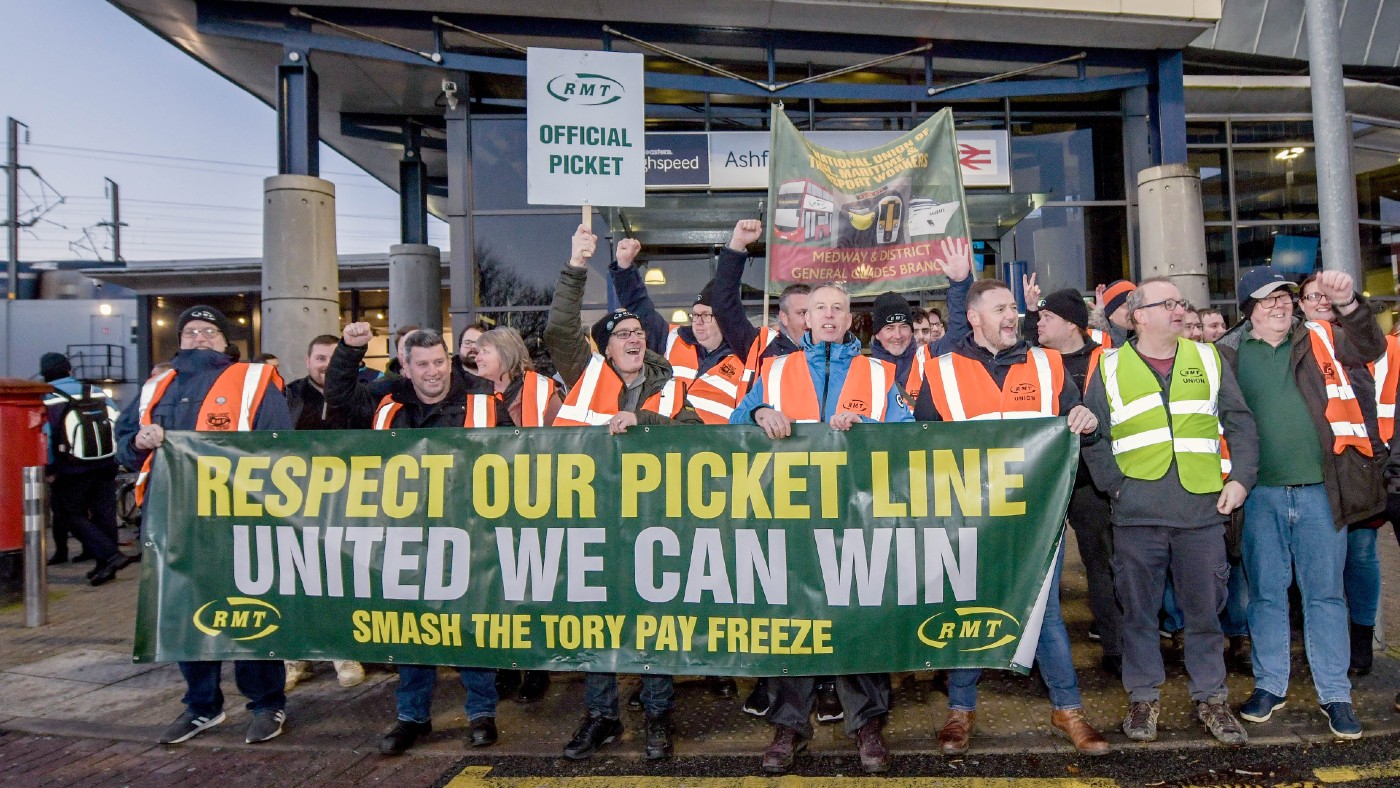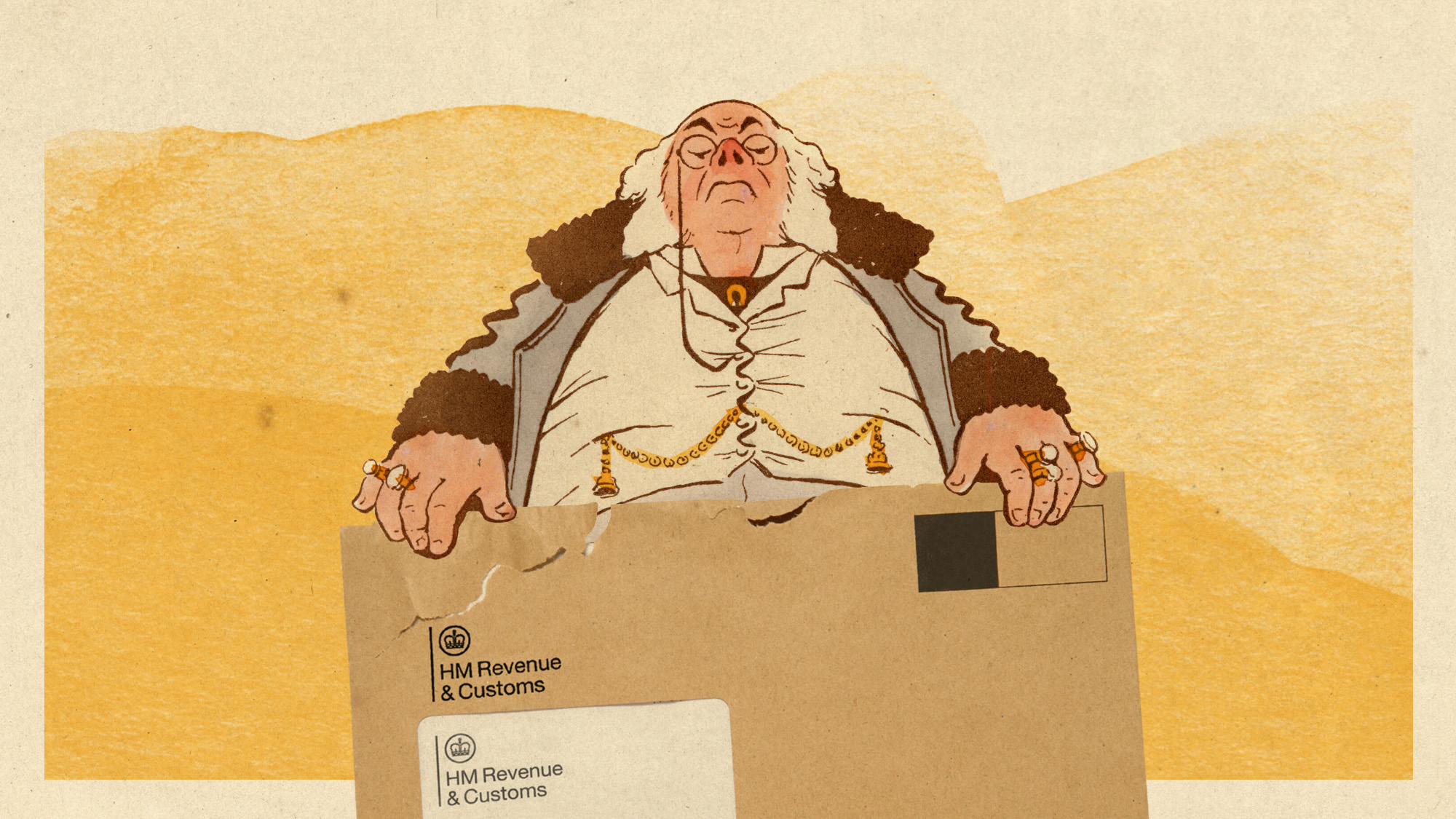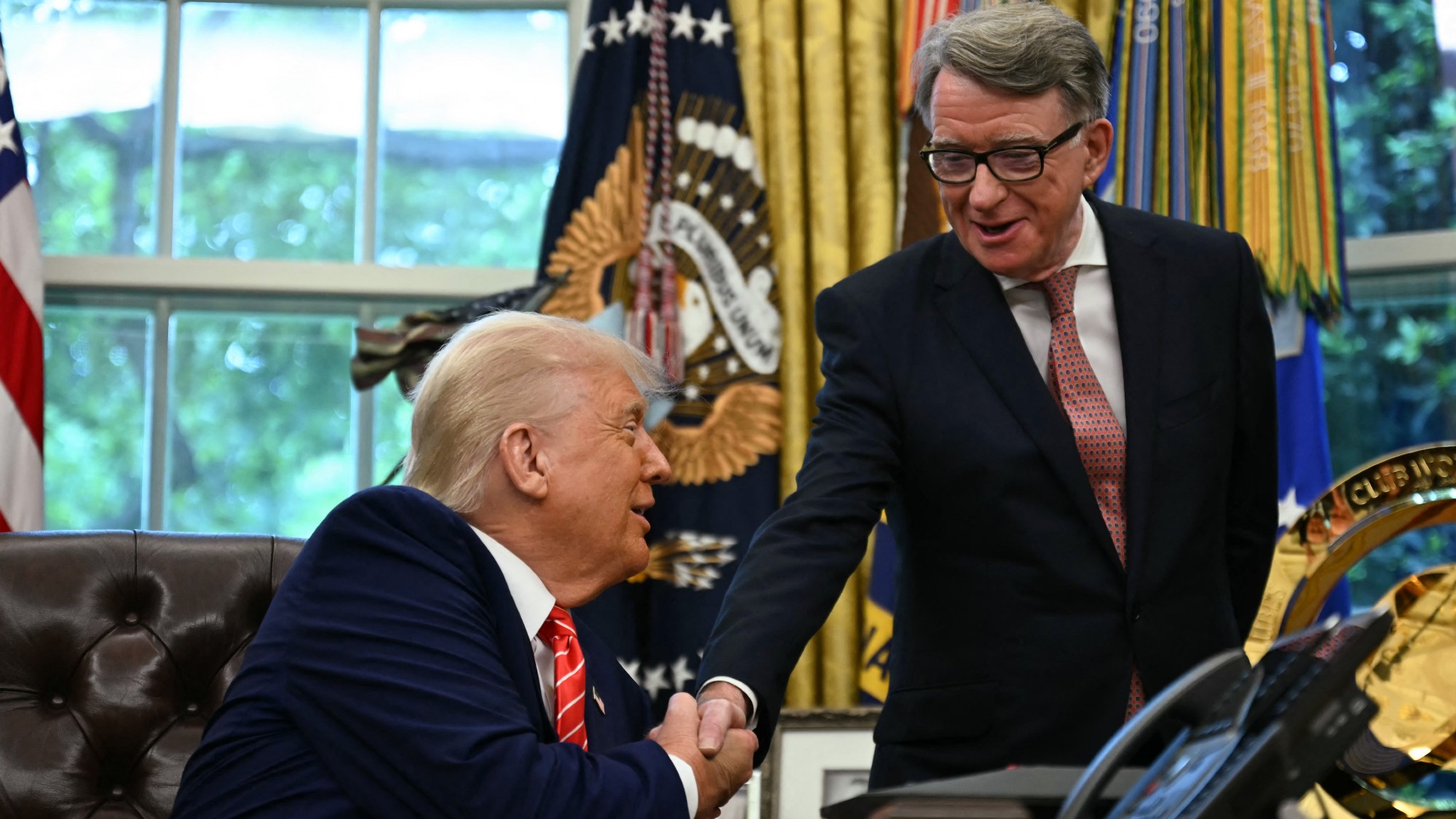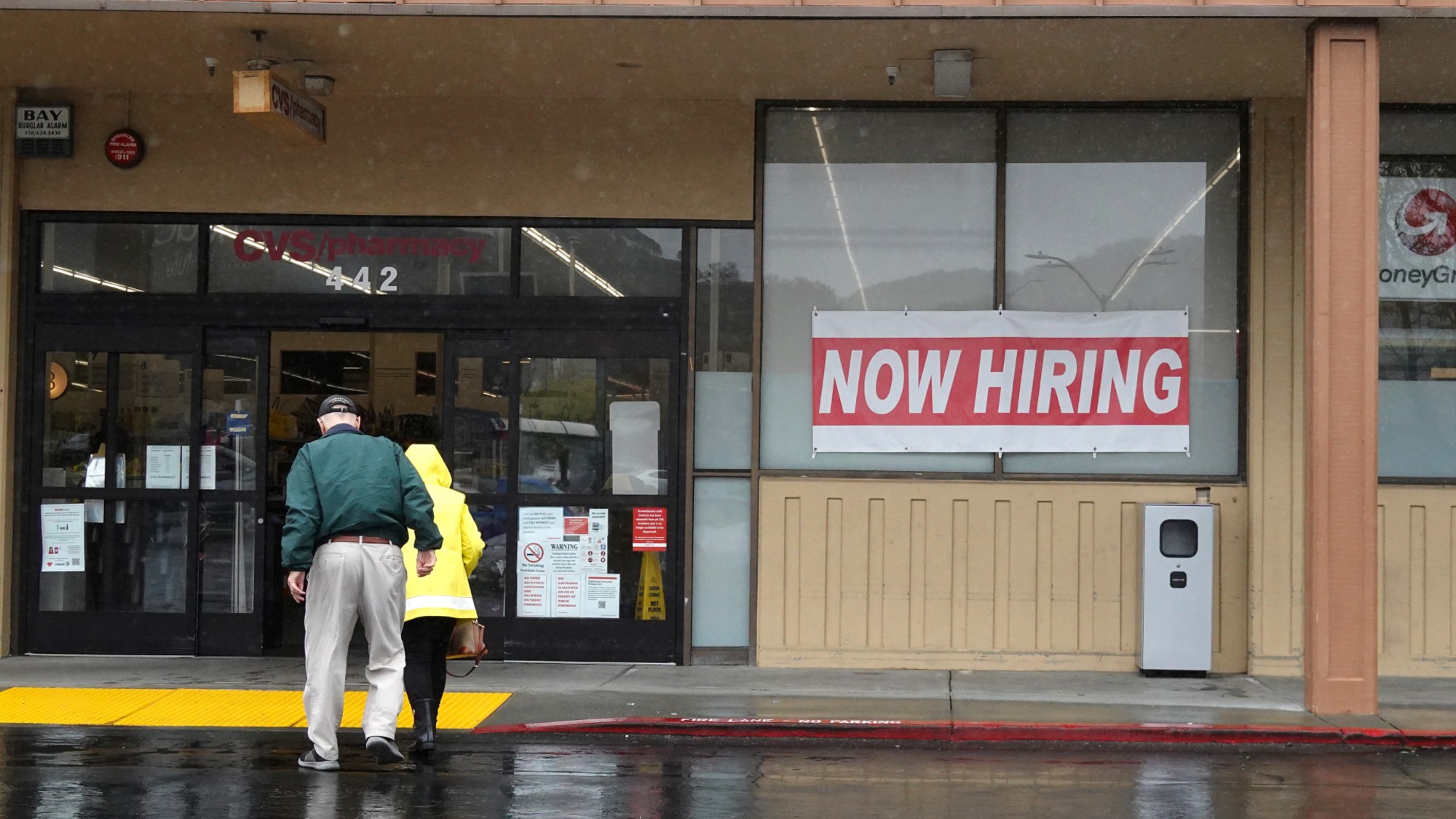Minimum service levels and the right to strike
Government’s proposed anti-strike laws will soon be debated by MPs

A free daily email with the biggest news stories of the day – and the best features from TheWeek.com
You are now subscribed
Your newsletter sign-up was successful
The government has confirmed plans to set minimum service levels during industrial action and allow rail, fire, ambulance and other key public sector bosses to sack employees who refuse to work during strikes.
Under new legislation announced by ministers on Thursday, the government will reserve the power to impose a minimum standard of service on employees working in public health, education and at nuclear plants. Unions which fail to allow for these minimum service levels during strikes could be sued by employers for damages.
Grant Shapps, the business secretary, said the government had a duty to “protect life and livelihoods”, as well as “the freedom to strike”. Minimum service levels would “restore the balance between those seeking to strike and protecting the public from disproportionate disruption” during public sector strikes, he said.
The Week
Escape your echo chamber. Get the facts behind the news, plus analysis from multiple perspectives.

Sign up for The Week's Free Newsletters
From our morning news briefing to a weekly Good News Newsletter, get the best of The Week delivered directly to your inbox.
From our morning news briefing to a weekly Good News Newsletter, get the best of The Week delivered directly to your inbox.
The measures will “not resolve the current wave of strikes”, said the BBC, and critics have accused Rishi Sunak of “silly posturing and game playing” rather than attempting to solve the crisis.
‘More far-reaching measures’ dropped
Government sources have suggested that some of the most hardline proposals included in the original anti-strike bill drawn up by Jacob Rees-Mogg will be dropped from the new legislation.
According to The Times, Sunak vetoed “measures that would have increased the threshold for strike ballots, doubled the notice for industrial action from two weeks to a month and banned ambulance workers from striking”.
No. 10 is reportedly concerned that the House of Lords might still delay the legislation, potentially pushing the entire strike law back until after the next general election.
A free daily email with the biggest news stories of the day – and the best features from TheWeek.com
Under parliamentary convention, the Lords can delay proposals not included in a party’s election manifesto. As transport strikes were the only type of industrial action featured in the Conservative Party’s 2019 manifesto pledge to introduce minimum service levels, the new law is likely to “face significant opposition” in the Lords, said the BBC.
The proposed legislation – which will apply in England, Scotland and Wales – is expected to be published next week. MPs are expected to debate it the following week.
‘Silly posturing’
The “anti-trade union legislation”, as The Guardian described it, has sparked a “furious backlash”. Paul Nowak, the Trades Union Congress (TUC)’s general secretary, said the proposals were “an attack on working people” which trade unions “will fight... every step of the way”.
Unions have claimed that the law breaches human rights legislation and threatened legal action against the government. “Yet again, Rishi Sunak abdicates his responsibility as a leader,” said Unite’s general secretary Sharon Graham in a statement. “Instead of silly posturing and game playing, he should step up to the plate, act as a leader and start negotiating to resolve the crises his government has created.”
Mick Whelan, the general secretary of Aslef, the trade union for train drivers, pointed out that bosses can already fire employees who strike for more than six weeks. In a statement, he said that many European countries have had minimum service levels in place for years but “they have never been enacted because they don't work”.
Labour leader Keir Starmer has pledged to repeal the legislation if his party wins the next general election. His deputy, Angela Rayner, accused Sunak of “wasting time on shoddy hurdles that even his own transport secretary admits won't work”.
Kate Samuelson is The Week's former newsletter editor. She was also a regular guest on award-winning podcast The Week Unwrapped. Kate's career as a journalist began on the MailOnline graduate training scheme, which involved stints as a reporter at the South West News Service's office in Cambridge and the Liverpool Echo. She moved from MailOnline to Time magazine's satellite office in London, where she covered current affairs and culture for both the print mag and website. Before joining The Week, Kate worked at ActionAid UK, where she led the planning and delivery of all content gathering trips, from Bangladesh to Brazil. She is passionate about women's rights and using her skills as a journalist to highlight underrepresented communities. Alongside her staff roles, Kate has written for various magazines and newspapers including Stylist, Metro.co.uk, The Guardian and the i news site. She is also the founder and editor of Cheapskate London, an award-winning weekly newsletter that curates the best free events with the aim of making the capital more accessible.
-
 Quiz of The Week: 14 – 20 February
Quiz of The Week: 14 – 20 FebruaryQuiz Have you been paying attention to The Week’s news?
-
 The Week Unwrapped: Do the Freemasons have too much sway in the police force?
The Week Unwrapped: Do the Freemasons have too much sway in the police force?Podcast Plus, what does the growing popularity of prediction markets mean for the future? And why are UK film and TV workers struggling?
-
 Properties of the week: pretty thatched cottages
Properties of the week: pretty thatched cottagesThe Week Recommends Featuring homes in West Sussex, Dorset and Suffolk
-
 Ski town strikers fight rising cost of living
Ski town strikers fight rising cost of livingThe Explainer Telluride is the latest ski resort experiencing a patroller strike
-
 Should Labour break manifesto pledge and raise taxes?
Should Labour break manifesto pledge and raise taxes?Today's Big Question There are ‘powerful’ fiscal arguments for an income tax rise but it could mean ‘game over’ for the government
-
 Pros and cons of a wealth tax
Pros and cons of a wealth taxPros and Cons Raising revenue and tackling inequality vs. the risk of capital flight and reduced competitiveness
-
 The UK-US trade deal: what was agreed?
The UK-US trade deal: what was agreed?In Depth Keir Starmer's calm handling of Donald Trump paid off, but deal remains more of a 'damage limitation exercise' than 'an unbridled triumph'
-
 Starbucks baristas strike over dress code
Starbucks baristas strike over dress codespeed read The new uniform 'puts the burden on baristas' to buy new clothes, said a Starbucks Workers United union delegate
-
 What is the job market's future after Trump's tariffs?
What is the job market's future after Trump's tariffs?Talking Points Economic analysts are split on what the tariffs could mean for employees
-
 Is this the end of globalisation?
Is this the end of globalisation?Today's Big Question American-led post-war order is 'finally starting to crumble' but that could bring about 'a more inclusive world'
-
 Can the UK avoid the Trump tariff bombshell?
Can the UK avoid the Trump tariff bombshell?Today's Big Question President says UK is 'way out of line' but it may still escape worst of US trade levies